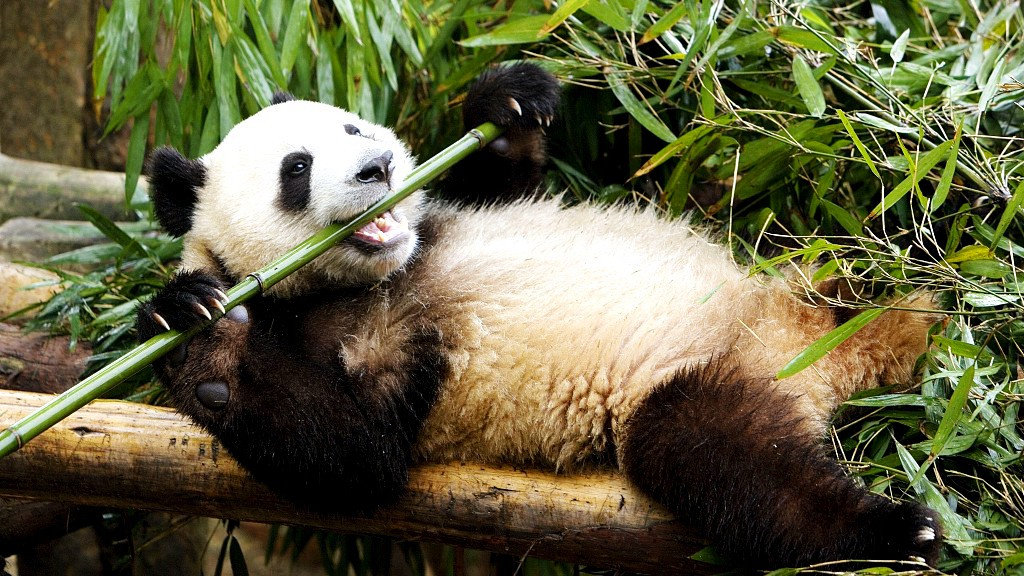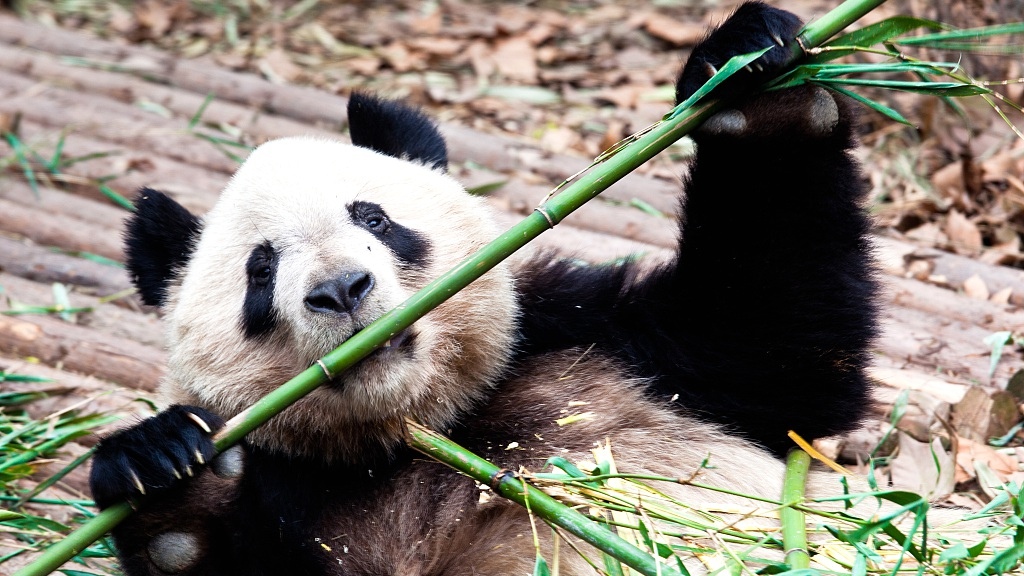
Animal
15:44, 08-Mar-2019
Why giant pandas eat bamboo rather than meat
CGTN
01:08

Chinese scientists have made progress in revealing more details of giant pandas' feeding habits and why they eat bamboo rather than meat although their teeth and the construction of the digestive tube are similar to carnivores.
Despite having physical characteristics more suitable for eating bamboos, including more developed molars when compared alongside other carnivores as well as a relatively larger head, pandas cannot absorb energy by digesting cellulose as well as herbivores.
However, they do better in digesting starch than other carnivores, and they usually choose the starchiest part of bamboo trees for consumption, according to a recent survey conducted by Zhang Wenping, a researcher at the Chengdu Research Base of Giant Panda Breeding.

A giant panda eats bamboos. /VCG Photo
A giant panda eats bamboos. /VCG Photo
By analyzing fecal matter from giant pandas, researchers found that giant pandas can only obtain energy from starch, hemicelluloses, and pectin in bamboos. The reason that giant pandas choose bamboos as their staple food is that bamboos, widely distributed in the wild, are easy for them to obtain, and they contain more starch than other woody plants.
Also, giant pandas consume little energy each day, indicating that their relatively heavy weight can be maintained by just feeding on bamboo.
The pandas have evolved through more than 2 million years of history in which they have fed on bamboo. Previous gene sequencing research also shows that the creature lost the gene T1R1 in the process of evolution and, therefore, started to eat bamboo.
(Cover image via VCG.)
(If you want to contribute and have specific expertise, please contact us at nature@cgtn.com.)
Source(s): People's Daily

SITEMAP
Copyright © 2018 CGTN. Beijing ICP prepared NO.16065310-3
Copyright © 2018 CGTN. Beijing ICP prepared NO.16065310-3